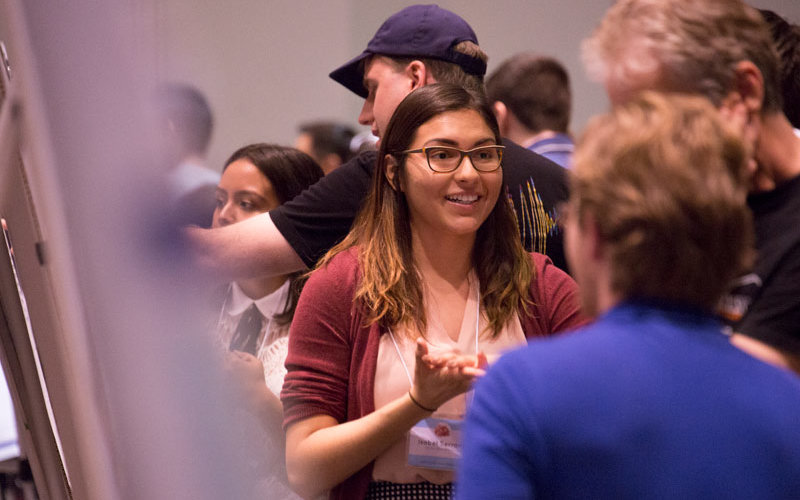
Isabel Serrano and Trini Nguyen have been interested in math since high school and Janice Reynaga came to campus considering one discipline of science only to switch to another.
All three women did well academically but it was not until they joined the University’s Maximizing Access to Research Careers (MARC) Scholars program that their interests and their future careers grew to include the possibility of advanced university degrees and futures in scientific exploration.
“My initial interest in the program was in working with MARC mentor Anael Verdugo [assistant professor of mathematics and her current mentor],” said Serrano, who is majoring in mathematics and history, “but when I looked further into the program, I realized how beneficial the entire program was.”
Biochemistry major Reynaga agreed. “There are so many benefits other than learning how to be a scientist,” she noted, citing travel and learning about and how to get involved in interdisciplinary research.
In addition to campus research and faculty mentorship, MARC scholars attend workshops and seminars about how to compete and succeed in getting into competitive Ph.D. programs. They receive stipends that help fund their scholarly activities, such as travel to professional conferences where they become comfortable presenting their research. And they travel to Ph.D. granting institutions to visit and conduct research.
This summer, Reynaga, Serrano, Nguyen and three other scholars are spending their summer advancing their research experiences, working with researchers from across the country.
Serrano is at UC San Francisco, working with a researcher at the Helen Diller Family Comprehensive Cancer Center and helping build a mathematical model to investigate the interactions between microRNAs and their target genes. “MicroRNAs are gene regulators,” Serrano explains, “which means that they can be used to silence genes that may be contributing to the spread of cancer.”
Reynaga is at the University of Wisconsin, Madison. “I am investigating how fluctuating levels of serotonin during lactation affect the energy balance of dairy cows,” she says. “Since dairy cows are extremely susceptible to disease during the transition period from pregnancy to lactation, we hope to learn how the cows balance essential nutrients and energy during that period.”
Trini Nguyen is conducting research at UC San Diego’s Computer Science Department. “I will be mining genetic information in order to better understand human diseases. I chose a project that is outside of my discipline because I wanted to learn new skills that will help me be my best in a Ph.D. program.”
The other second-year scholars conducting research at doctoral granting institutions this summer are:
· Jessia Barragan, psychology, University of Oregon
· Alexis Drain, psychology, Stanford
· Julia Ngo, biological science, University of Oregon
“My favorite part of the MARC program is the opportunity to network with scholars from other disciplines,” says Nguyen. “The MARC program reminds me that all of the disciplines are connected with each other, and to excel in one, we must sometimes learn from another.”
“The program has changed me,” notes Reynaga. “The things I once was too scared to do, I have to do with one week or month’s notice. I’ve learned how to talk with my peers and professors in a way that allows me to understand their research. The most important aspect is the structure it brought to my life; within my first semester, I had goals set for the month, the semester, and an idea what I would be doing the whole year.”
“The MARC Program has helped me define my research interests and my career path,” adds Serrano. “It’s an amazing experience and program.”